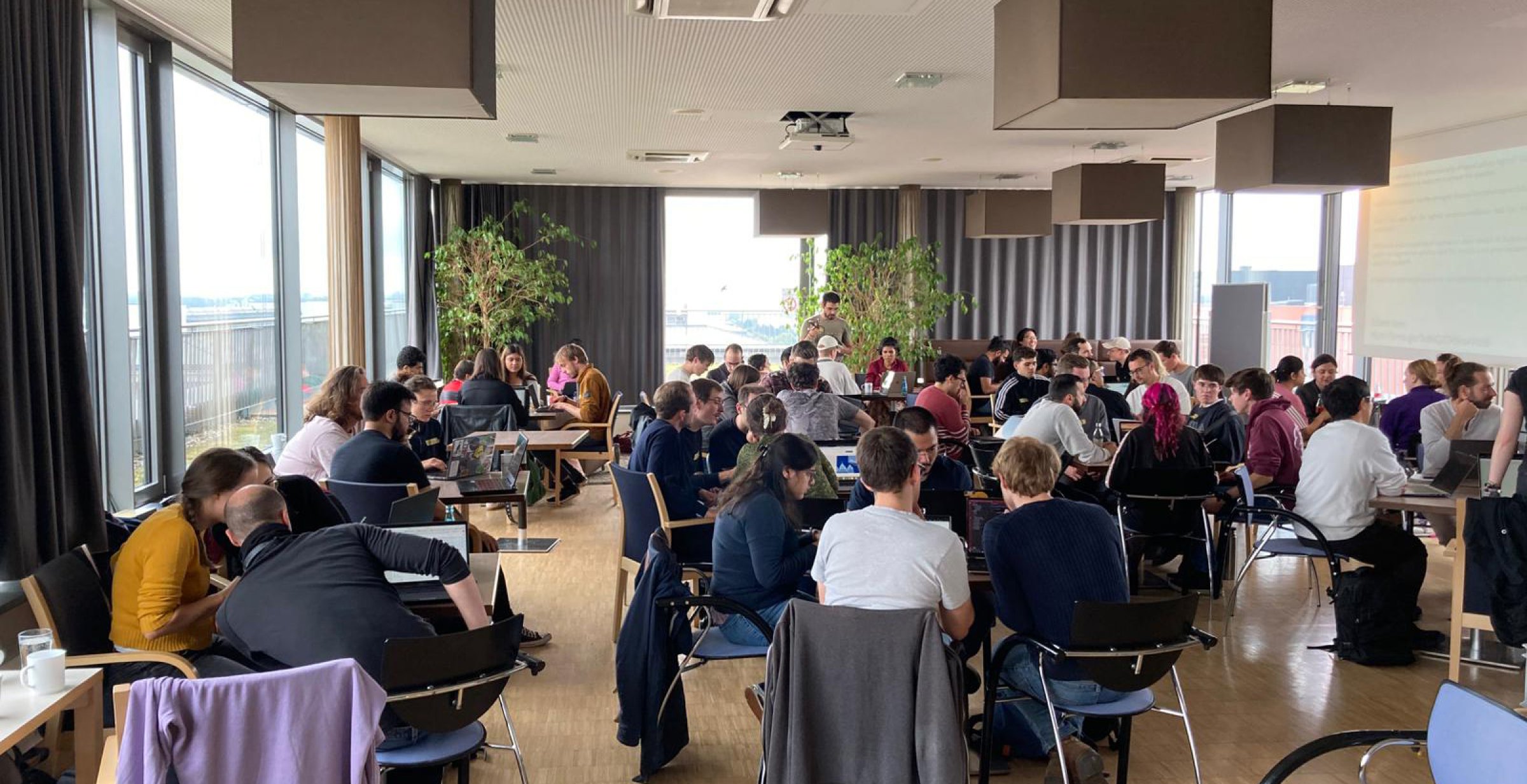October 8, 2025
Hackathon at FIAS
PhD Symposium at Bernstein Network
The PhD symposium connected to the Bernstein Conference was once again held at FIAS. This year's spotlight was the topic of consensus: Where do we agree, where don’t we, and why does it matter? The path to this question was a hackathon in which participants analyzed a data set in small groups and discovered that different answers to a scientific question can be found depending on the perspective and interpretation.
The participants—doctoral and master's students from all over Europe—examined how different interpretations of fundamental neuroscientific concepts influence their daily scientific work. They analyzed a data set to determine how different implementations of the same concept can lead to significantly different results.
Mattia Chini, one of the organizers, compliments: “Despite their different scientific backgrounds, everyone was very enthusiastic.” The organizing team was impressed by the dedication and energy that emerged. Participants in the sold-out event described the experience as a reality-check and intellectually stimulating. Interestingly, the results revealed how little consensus there actually was on supposedly simple questions, even among experienced neuroscientists. The task was to compare images of three brain regions and determine which of these regions exhibited the highest complexity, for example. It was precisely here that it became apparent that criteria such as complexity can be interpreted very differently. “This disagreement is not discouraging, but inspiring,” said Chini. The hackathon thus fulfilled its mission of highlighting how "hidden" methodological choices can result in practical outcome differences.
The Bernstein Doctoral Symposium offers junior researchers to meet their peers, share their experiences and make new connections. This year, it was organized by Jonas Elpelt (FIAS), Lisa Haxel (Tübingen), Irina Pochinok (Hamburg), and Mattia Chini (Hamburg). The focus is on promoting collaboration, curiosity, and critical dialogue among participants. It takes place every year on the sidelines of the Bernstein Conference, where experimental and theoretical neuroscientists meet for scientific exchange at different locations in Germany. The international Bernstein Network combines experimental neuroscientific approaches with theoretical models and computer simulations. It is a funding initiative of the German Federal Ministry of Education and Research (BMBF) to promote the transfer of theoretical knowledge to clinical and technical applications. It is named after the German physiologist and biophysicist Julius Bernstein (1839-1917).
